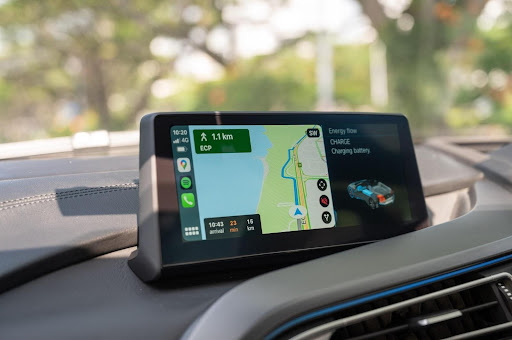GPS tracking, which started as a means of monitoring signals from satellites, has exploded in use, especially for security and monitoring. Just like most technology widely used for everyday purposes today, GPS tracking in fleets of vehicles was initially deployed for military purposes to monitor their operational vehicles. At that time, technology was limited and expensive to access. However, it is now much more affordable and accessible for individual and corporate purposes.
This article will explore seven of the essential advantages of using GPS tracking for a fleet of vehicles, in this case, trucks. Apart from being cost-effective, the advantages far outweigh the disadvantages, if there are any. If you’re a fleet manager and do not have a GPS tracking system installed, you will undoubtedly change your mind after reading this. And if you already have, let’s look at how to get the best out of it.
A Brief History of GPS Tracking System
Let’s begin by looking at a simple definition of GPS tracking technology. GPS tracking system is a technology that deploys the Global Navigation Satellite System network that can be connected to GPS devices which are then used to receive information about the direct location, speed, and direction of vehicles, such as trucks. Tracking of a fleet uses Internet of Things (IoT) sensors to harvest lots of data from a fleet that can then be accessed and used by the managers.
Fleet tracking taps into satellite technology and the production of personal computers have made its use more effective and efficient. However, the ability to monitor vehicle movement was more of a military asset, and its use outside the operations of the armed forces was very limited. However, President Bill Clinton opened the use of GPS navigation to civilians as well, precisely in 1996.
The evolution from GPS navigation to track was also down to the revolutionary advancements in technology leading to pinpoint accuracy in the tracking of vehicles. As a result, GPS truck tracking like RAM tracking has made accountability easier as fleet managers can then easily monitor their trucks and give instructions to drivers from the comfort of their offices.
Why Trucks Should Use GPS Tracking?
This article will explore seven essential advantages in a moment. But first, are you aware that the Federal Motor Carrier Safety Administration (FMCSA) requires that most commercial trucks install electronic monitoring devices on their vehicles? The law ensures accountability and transparency for users on the road. That means that for most trucks, it is a requirement already.
But beyond the law, there are undisputable advantages of using a GPS tracking system for your fleet. Let’s look at some of them.
Saves Expenses
Having a tracking system on your trucks saves expenses and reduces costs. This is because, without it, so many expenses can be incurred, especially as it relates to the irresponsibility of drivers, breaking the law, driving along longer routes, and using fuel.
Tracking reduces expenses as it provides the best options in every situation. Since businesses always want to reduce costs and improve profit, tracking the trucks is the way to go
Security from Theft
Without tracking, trucks and the goods they carry are at risk of loss. One of the advantages of tracking individual vehicles is protected from theft. The added security tracking for trucks ensures that the manager knows their location.
If any truck in the fleet is stolen or the driver is in danger, alerts are sent to the appropriate quarters for emergency rescue. Some GPS tracking systems even have buttons that can help drivers who are in dangerous situations.
Saves you Time
Time is valuable in business. Nothing helps save time like knowing the best routes to take and what to do on time. Tracking provides real-time information on what best to do to reach your destination faster. For companies that use time as a measure of efficiency, tracking your trucks is the best option for your business.
Improves Responsible Driving
Nothing improves a driver’s performance like knowing that he is being monitored. Tracking gives real-time updates on drivers’ actions and allows them to be called to order when they go out of hand. Managers can contact drivers on the spot and correct anomalies that have been noticed. Above all, a driver can be called to order if he is about to break the law
Reduces Insurance Costs
You can reduce the amount of money spent on insuring your fleet by installing tracking devices. Insurance companies know that fleets with tracking devices are better managed and therefore have better premiums. Truck companies have observed up to a 30% reduction in premiums.
Helps with Monitoring of Drivers
Besides instilling discipline in drivers, tracking trucks helps improve communication between drivers and their managers. When drivers also know they are constantly communicating with their managers, it improves workplace relationships. For goods that need to be monitored adequately, GPS tracking helps to make that happen.
Related Info: Private Car Service Near Me
Provides Real-time Updates
For better administration, real-time updates are required. GPS tracking provides real-time information that helps managers know what is happening at every point. Any business that offers better customer satisfaction is sure to make more money. The implication is that customers are better served and satisfied.
Conclusion
We can only exhaust some of the benefits of having a GPS tracking system installed for your fleet if you manage one. Your trucks will be well maintained as tracking alerts you when your vehicles require servicing. This ultimately leads to longer-lasting trucks that don’t break down occasionally.
Moreover, you could be breaking the law without it. With technological advancements, we expect the system to even improve further in the coming years. But every transport business that must be run efficiently can do much better with a cost-effective tracking system. So, as you can see, there’s no reason not to have one if you are a manager of trucks.









